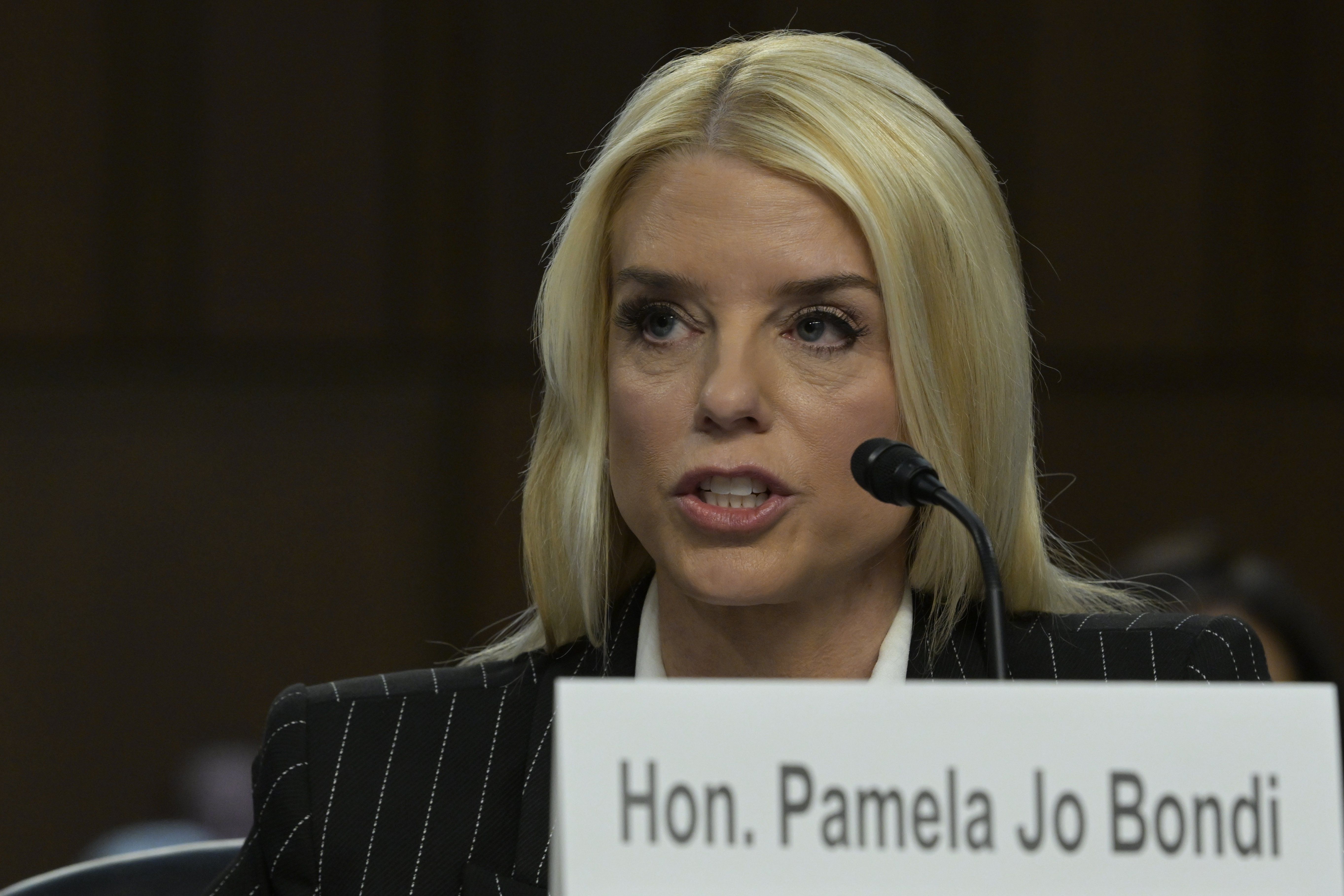Pam Bondi, Donald Trump’s pick for attorney general, appeared before the Senate Judiciary Committee for her first of two days of confirmation hearings on Wednesday.
Democrats' questions focused on Bodi’s loyalty to Trump and whether it would degrade the department’s independence or enable it to be weaponized by the president. Bondi is a longtime ally of Trump, who aided his defense during his first impeachment and refused to say whether Biden won the election during the hearing. Bondi also did not say whether she would defy White House pressure but reassured the chamber that “politics will not play a part” in her job. In his previous term, Trump forced out multiple attorneys general who disagreed with him.
Republicans pointed to the fact that several presidents in the past have appointed people close to them – including John F. Kennedy, who famously appointed his brother — and accused the department’s investigations into Trump under the Biden administration as being politically motivated. They also praised Bondi for her history of being tough on crime, and with a three-seat majority they are expected to have an easy time voting her in.
Why it matters whether the Justice Department is independent from the president. The Department of Justice is meant to investigate the wrongdoings of anyone, regardless of their political affiliations, and without fear or favor. Beyond eroding trust in the institution, some fear that Trump could use the department to carry out the “retribution” against his enemies that he promised on the campaign trail.
